The Ancient Benin Kingdom was a pre-colonial African state that existed in what is now southern Nigeria between the 14th and late 19th centuries. The kingdom was known for its advanced political, social, and economic systems, as well as its impressive art and architecture. The capital was the city of Benin City, which was surrounded by walls and served as a center of trade, culture, and politics.
The ancient Benin kingdom was known for its powerful military, which allowed it to expand its territory and protect its trade routes. And it also had a rich cultural heritage, with a flourishing tradition of art and bronze casting. The kingdom was eventually conquered by the British Empire in the late 19th century, and its territory was annexed to the British colony of Nigeria.
Also Read: Six Most Powerful Tribes In Nigeria
Heroines of Ancient Benin Kingdom
The lives and deeds of some outstanding heroines of the ancient Benin empire.
Queen Idia
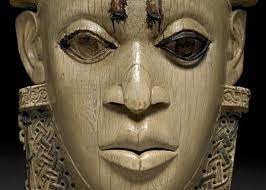
Queen Idia was the wife of Oba Ozolua, the Oba who reigned in about 1481 AD. She became the first Iyoba (Queen Mother) of Benin when Esigie conferred the title and the Eguae-Iyoba (Palace of the Queen Mother) upon her.
She played a very significant role in the rise and reign of her son, Oba Esigie. Queen Idia is the famous warrior who became even more popular when an ivory carving of her face was adopted as the symbol of FESTAC in 1977.
Emotan
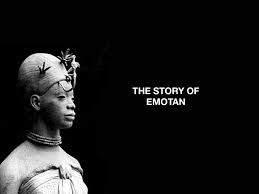
Emotan is one of the heroines of the Benin Kingdom. She was an ordinary trader who sold her wares at the exact point where her statue now stands.
She is credited to have founded the first informal creche in Benin as her hut was a popular make-shift nursery for the children of families patronizing the market.
Her hut also served as a refuge and hideout for Prince Ogun. She showed immense kindness to the prince when he was fighting to gain back power from his usurper brother, Oba Uwaifiokun who reigned about 1432 AD.
Emotan played a significant role in helping Prince Ogun (who eventually became Oba Ewuare) ascend the throne. Oba Ewuare reigned as the 12th Oba of Benin in about 1440 AD.
Following Emotan’s death a short while after Ewuare’s ascension to the throne, the Oba decreed that she should not only be buried in her hut, but that her grave be marked with an Uruhe tree and that she should be deified as the conscience of justice. Every celebratory procession in Benin pays homage to the burial site.
Also Read: Queen Amina of Zazzau: A West African Warrior Queen
Oba Akenzua II, in cooperation with the British Colonial authorities, commissioned in 1954 a life-size bronze statue of Emotan as a young woman, sculpted by Mr. John A. Danford, in his Chelsea, London, studio in 1951, from a miniature model cast by Igun Street artists.
Queen Iden
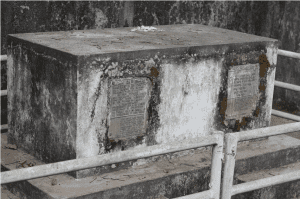
Queen Iden is yet another heroine whose sacrifice helped shape Benin’s kingdom. She was queen during the reign of Oba Ewuape in about 1700 AD. She volunteered herself as a sacrificial lamb for the welfare of her husband and that of the entire kingdom.
Her husband, Oba Ewuape, ascended the throne in very turbulent times. His kingdom and chiefs rebelled against him. He had the kingdom but had no subjects. His palace was deserted. She stood by Oba Ewuape and refused to leave the palace. The oracle divined that for peace to be restored to the Benin Kingdom, a human sacrifice was needed. Queen Iden also offered herself as a sacrificial lamb for the restoration of the monarchy. She was given a befitting burial, and her tomb lies close to Oba Market (in Benin City) to this day.
Also Read: Story of Queen Lúwo Gbàgìdá, First And Only Female Ooni of Ife
Queen Amina
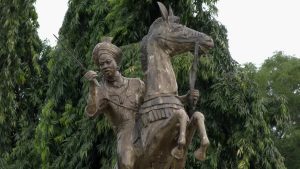
She was a warrior queen of the city-state of Zazzau (now Zaria in Nigeria) in the late 15th and early 16th centuries. She was also known for her military exploits and for building and expanding the city-state’s territory during her reign.
Moremi Ajasoro
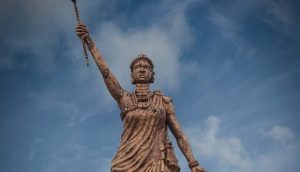
She was a queen of the Yoruba kingdom of Ife in the 12th century. She is also celebrated as a hero for her role in rescuing her people from the invading army of the neighboring Kingdom of Benin.
Funmilayo Ransome-Kuti
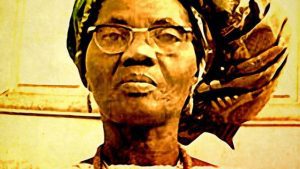
She was a prominent feminist and political leader in Nigeria in the 20th century. And was also the mother of the famous musician and political activist, Fela Kuti. She also fought for the rights and welfare of women and children in the colony of Nigeria, particularly in Western Nigeria.








